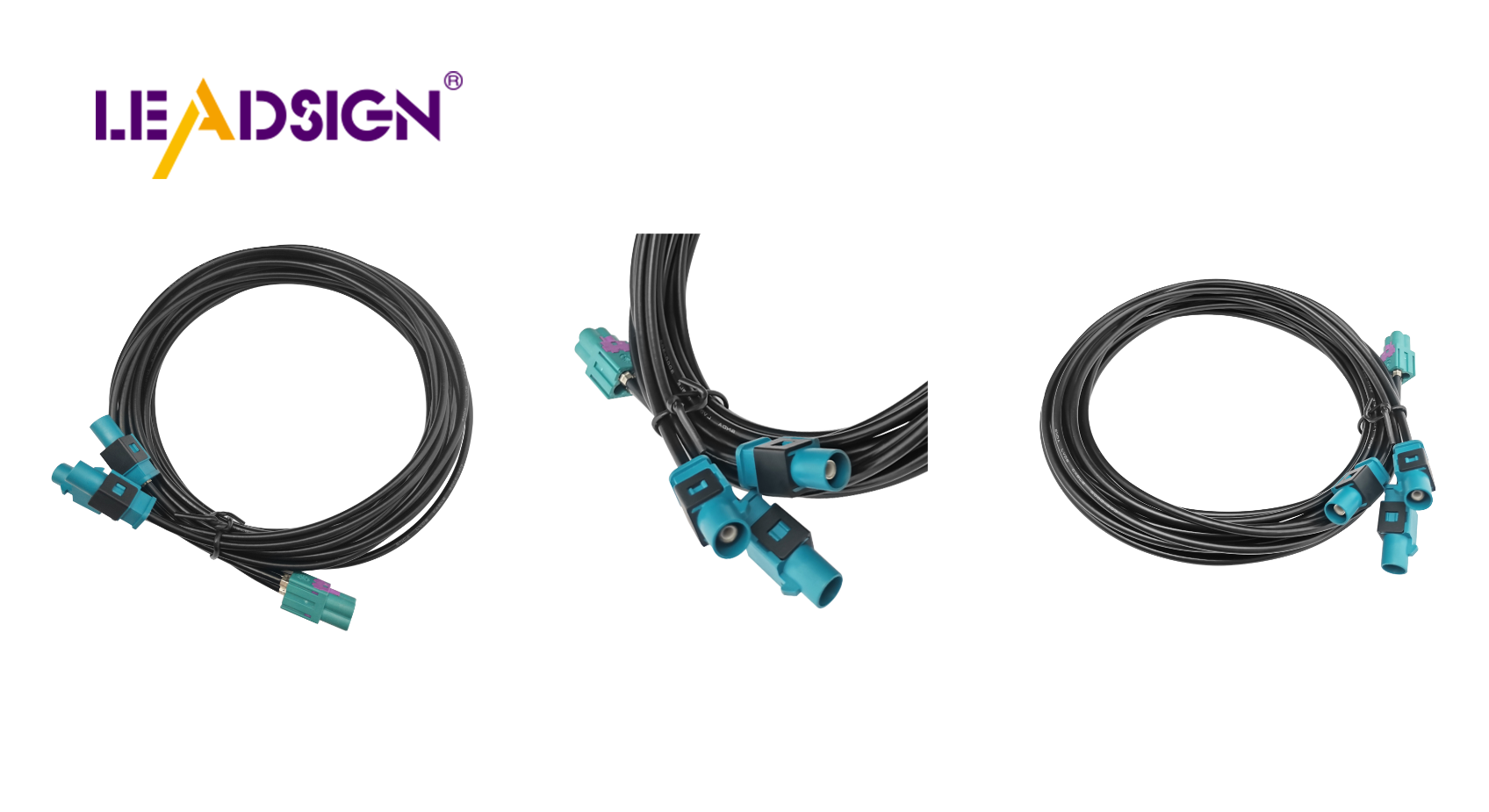Essential Tips for Choosing Automotive Electrical Connectors Types

Selecting the appropriate automotive electrical connectors types is crucial for maintaining the safety and functionality of a vehicle. These connectors play a vital role in ensuring the proper flow of electricity within the car's systems. Making the right choices is essential to avoid potential issues, as connectors are more prone to failure compared to airplane wires by 10-100 times. This article highlights the significance of using quality connectors and explains what attributes contribute to their effectiveness and longevity in automotive applications.
Understanding Car Electrical Connectors
Picking the right car electrical connectors is important. They help car parts work together by sending power and signals. Knowing about different types helps you choose better.
Types of Car Electrical Connectors
Car connectors come in many shapes, each for a special job:
Blade Connectors
Blade connectors are flat metal pieces that fit into slots. They're easy to use and reliable for cars. They connect power and signals safely.
Pin Connectors
Pin connectors have pins that go into sockets. They're used where many connections fit in small spaces. Pin connectors are strong and great for tight spots.
Butt Connectors
Butt connectors join two wires end-to-end securely. They're common in fixing or changing car wires. They hold wires together by crimping or soldering.
Connector Materials
The stuff used in car connectors affects how they work:
Metal Connectors
Metal ones, like copper or aluminum, carry electricity well. They're good for high-power jobs and tough conditions.
Plastic Connectors
Plastic ones are light and don't rust easily. They're used where there's water or chemicals around. They protect metal parts inside.
What Connectors Do
Car electrical connectors do two main things:
Power Transmission
Connectors move power between car parts, like lights or motors, so they work right.
Signal Transmission
They also send signals between electronic parts, helping systems talk to each other smoothly.
Knowing these things helps pick the best connectors for your car needs.
Important Things to Think About for Connectors
Picking the right car connectors needs careful thought. These things help them work well in their place.
Weather Conditions
Cars face tough weather, so connectors must be strong.
Heat and Cold
Connectors should handle hot and cold. Heat makes them bigger, cold makes them break. A study shows good connectors can take temperature changes. This keeps them working well for a long time.
Water Safety
Water can rust and break connectors. Good seals stop water from getting in. This is important for cars in rain or wet places. Keeping water out helps connectors last longer.
Power Needs
Knowing what power the car uses is key.
Voltage Limit
Each connector has a voltage limit. This tells how much power it safely takes. Picking the right one stops electric problems and keeps things safe.
Current strength means how much power a connector carries without getting too hot. Right ones move power well, stopping heat and damage to the car's system.
Current strength means how much power a connector carries without getting too hot. Right ones move power well, stopping heat and damage to the car's system.
Toughness and Flexibility
Connector toughness affects how long they last and bendy they are.
Strong Build
Strong ones are needed for cars because of shakes and stress. They cut down on breaking and fixing costs.
Easy Bending
Bendy ones fit tight spots and move with the car parts. They work with different designs, making them good for many types of car connectors.
Thinking about these helps pick the best car connectors for your needs, keeping systems reliable and lasting longer.
Best Ways to Install and Care for Connectors
Installing and caring for automotive electrical connectors types helps them last longer. Good practices stop problems and make car systems work better.
How to Install Right
Putting connectors in right is important. Two ways are crimping and soldering.
Crimping
Crimping means squeezing a connector onto a wire tightly. It's fast and works well in cars. Use the right tools and strip the wire correctly for a strong hold. A good crimp stays firm against shakes and weather.
Soldering
Soldering joins wires by melting metal around them. It makes a strong link that fights rust and stress. Use the right iron and materials, keeping it clean helps too. Good soldering boosts electricity flow and lasts long.
Regular Check-Ups
Checking often finds problems before they get big. Look at connectors closely.
Checking
Look for wear, rust, or damage on connectors. Find loose parts or broken bits early to avoid bigger issues later.
Cleaning
Clean dirt off connectors so they work well. Use safe cleaners to not hurt them. Clean ones carry power better without failing.
Case Studies: Stories show how good care of wires helps in many places. They prove that installing right and regular checks keep things working well.
By following these tips, car connectors stay reliable, making vehicles safer and more efficient.
Choosing the right automotive electrical connectors needs careful thinking.
Recap of Essential Tips: Knowing connector types, materials, and jobs helps them work well. Think about weather, power needs, and how strong they are for good connections.
Importance of Informed Decision-Making: Picking the right connectors makes them last longer and work better. Choose based on where and how they will be used.
Encouragement to Follow Best Practices: Doing things the right way when putting in and taking care of connectors makes them last longer. Check them often and use good methods to stop problems and keep things working well.
See Also
Significance of FAKRA Connectors in Auto Industry Usage
Essential Role of FAKRA Connectors in Contemporary Cars
Foundations of HSD Connectors in Auto Sector

